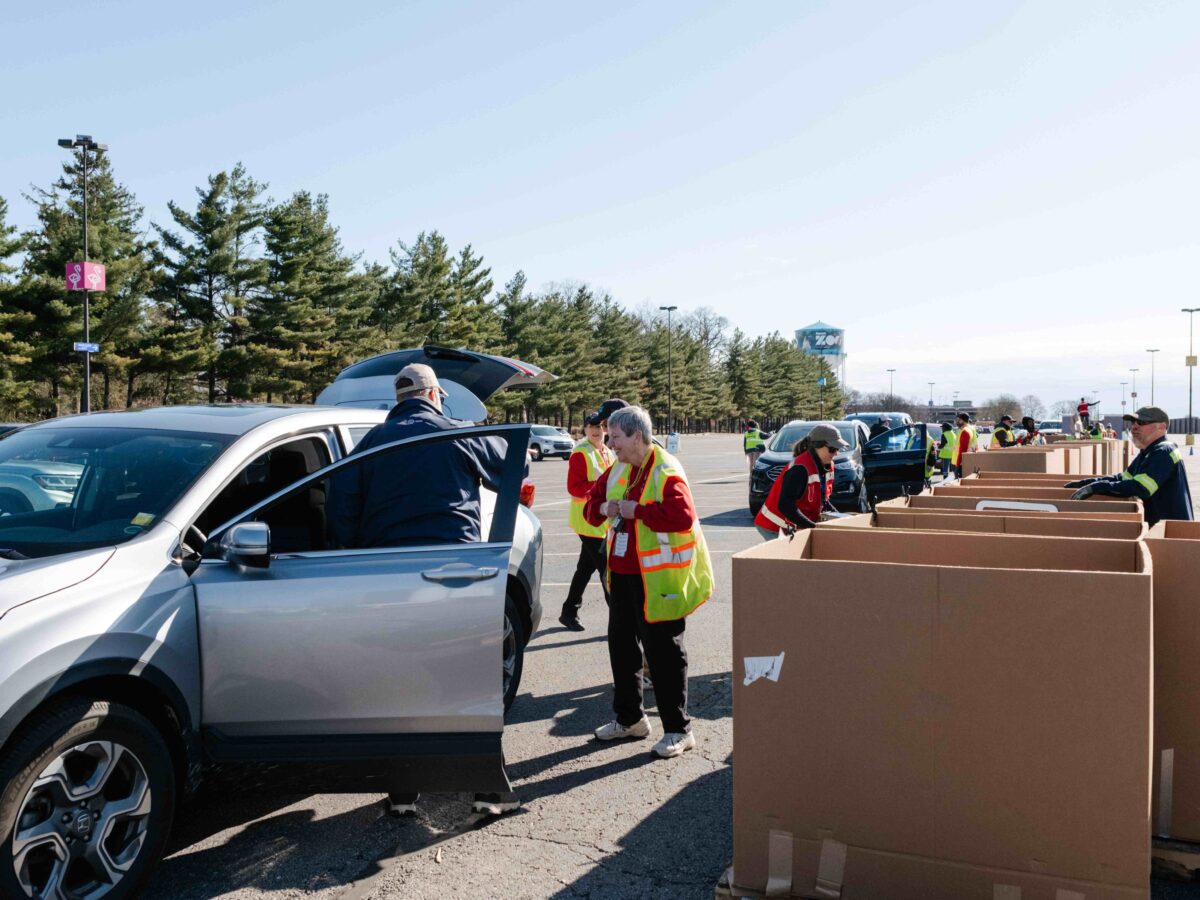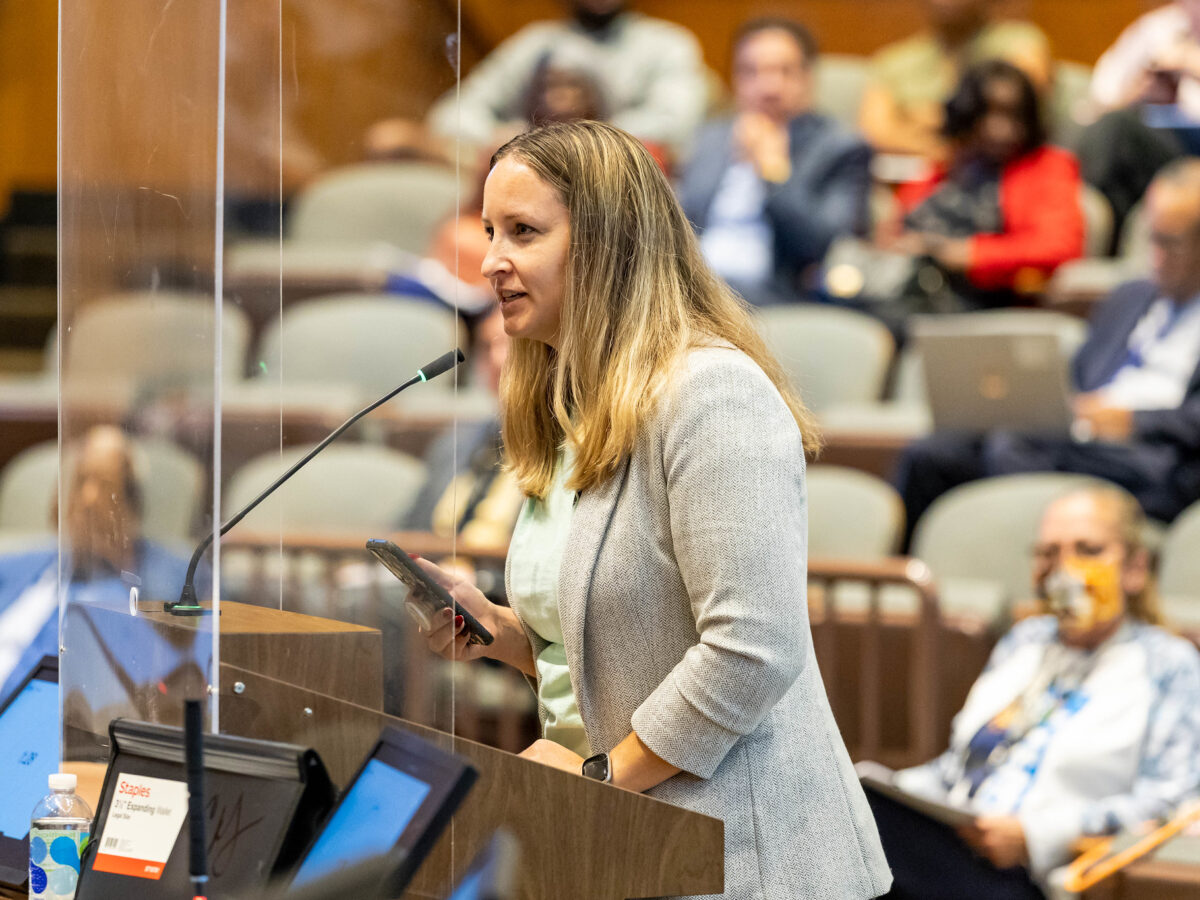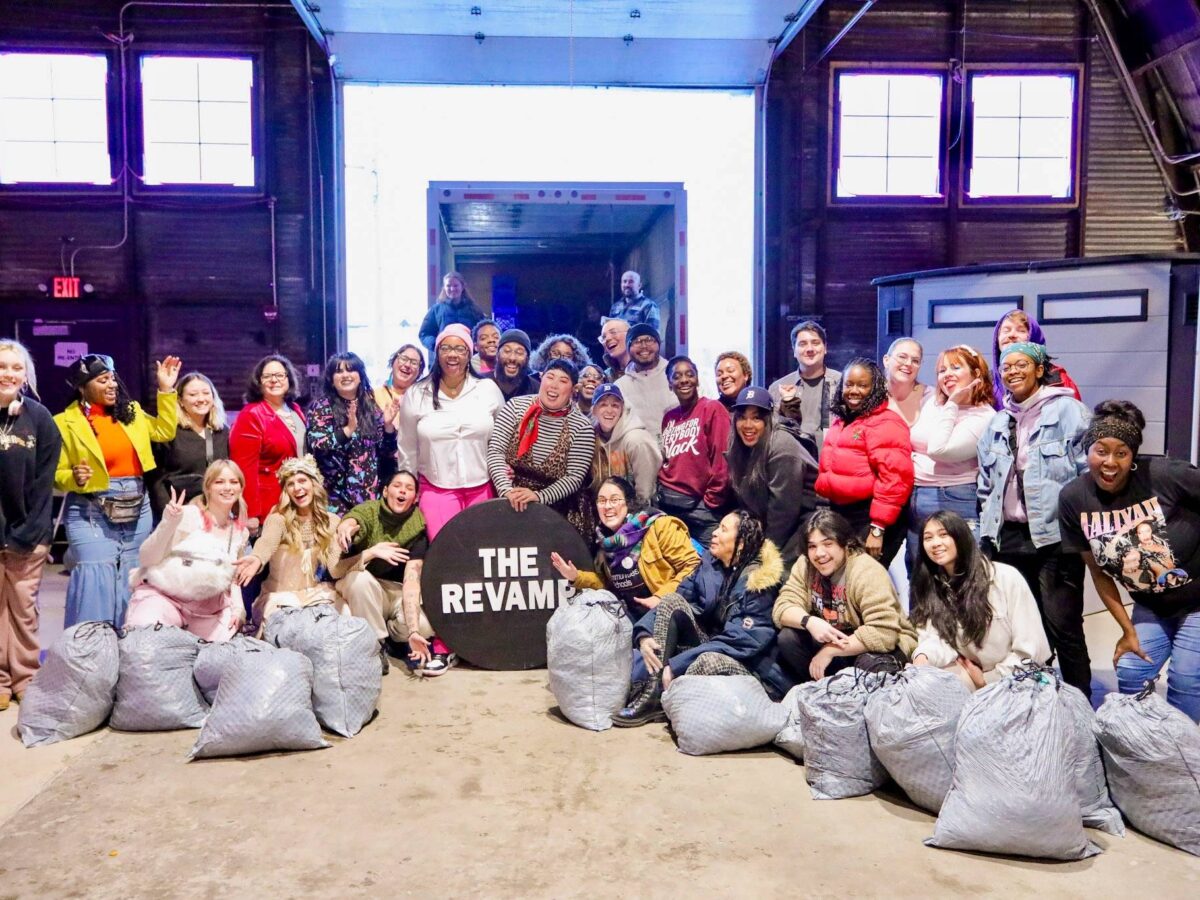Overview:
- Eradajere Oleita's 25th birthday project became a global upcycling phenomenon.
- The Chip Bag Project upcycles mylar chip bags to make sleeping bags for unhoused people.
- The organization is growing with the help of a $167,000 grant from the Michigan Department of Environment, Great Lakes, and Energy.
Eradajere Oleita makes improving her community a priority.
She’s an advocate for environmental preservation through local organizations like Detroit’s Green Task Force, and as an EcoWorks school coordinator, where she taught students about climate change.
Oleita stumbled on a video of a woman in England who fused used chip bags into sleeping bags. With the help of YouTube tutorials, Oleita made a couple of sleeping bags and donated them to local residents as a project for her 25th birthday.
The impact would extend far beyond her community.
The bags were a hit and quickly garnered an international audience. Donations – and sleeping bag requests from as far away as Singapore — have arrived since the social initiative began in 2020. The Chip Bag Project has distributed than 100 sleeping bags, Oleita said.
The sleeping bags are created by ironing layers of chip bags together until they form a thick layer, or blanket. The mylar material used to package chips is extremely useful as a warming utility: it reflects the heat of the occupant, making the bags a kind of cocoon.
It takes nearly 200 chip bags to produce a sleeping bag. The mylar material is also waterproof, making the bags durable in harsh weather conditions. The lightweight nature of the bag makes it convenient for individuals who move around often.
Now, five years after prototyping her first bag and scaling production, Oleita is revving up to take The Chip Bag Project to the next level. With a $167,000 grant from the Michigan Department of Environment, Great Lakes, and Energy, The Chip Bag Project will place neighborhood collection kiosks throughout the state.
Oleita plans to install the first kiosk at the Detroit People’s Food Co-op this fall.
“Our members are passionate about recycling and composting, so we are excited for the project. It will definitely be an opportunity for people to learn more about the mission,” said Jason Ford, director of operations for the Detroit Black Community Food Sovereignty Network, the nonprofit that built the co-op.
The Chip Bag Project aims to install additional kiosks at locations around the state in time for Earth Day 2026. The kiosks will serve as both a collection site and educational touchpoint where residents can learn more about upcycling and the use of mylar.
‘I want to create something that’s sustainable’
For Oleita, the mission of The Chip Bag Project goes beyond sleeping bags. She wants the world to think about how it can produce less waste.
“I’m in the field of figuring out how we can minimize our waste, and how we can have socially conscious human practices,” she told Planet Detroit.
Oleita’s passion for environmental justice began when she was a child in Nigeria. That passion led her to be a Clean Air and Water Fellow in 2019, a Work For Me, DTE! Fellow, and a Detroit organizer for the Michigan Environmental Justice Coalition.
Oleita said she’s slowed down and shifted her priorities from production to building infrastructure, despite the demand for more sleeping bags.
“I don’t want to rush something that feels so ordained,” Oleita said.
When the goal was to make only a few sleeping bags, Oleita said she could get by with support from friendly volunteers. Oleita credits her team with giving her the support to move forward, and recalls the exhaustion she experienced from producing bags while trying to establish the organization.
“It felt as if I was trying to build the bike, ride the bike, and fix the bike, all at the same time.”
A lack of resources made it hard to expand Oleita’s vision past the initial goal, she said. Now, she has shifted her energy to building out the long-term strategic plan for The Chip Bag Project.
Oleita is focused on building a sustainable nonprofit organization that caters to the cause long after the trend has passed, she said.
The project has five team members and a co-director. A seven-person advisory board is being established.
Recognizing the importance of the project to the community, Oleita said she’s selecting team members who are dedicated to building a foundation with integrity.
“It’s not for me. It’s for the next executive director, who hopefully will come on in the next five years. I want to create something that’s sustainable.”
Her inventory of chip bag donations stands at 1 million pounds.
MORE REPORTING FROM PLANET DETROIT
GUIDE: How to recycle electronics in Southeast Michigan
Over 50 million metric tons of electronics are discarded globally each year, and much of the waste goes to landfills, leaking harmful substances into the environment, says Chloe Pyne, the Detroit Zoo’s sustainability coordinator.
Detroit City Council backs repeal of Michigan’s ban-on-bans for plastic bags
Detroit City Council resolution highlights the cost of plastic waste, including the health threat posed by microplastics and nanoplastics.
Detroit’s ReVamp clothing swap makes the world more sustainable, 1 party at a time
Amanda Sweet leads The ReVamp, a clothing swap collective that empowers communities by promoting sustainability and fostering connections, diverting textile waste and offering a creative space for social engagement.
The Chip Bag Project spreads the word about upcycling
Aside from sleeping bags, The Chip Bag Project has distributed 5,000 warming kits to unhoused individuals, that include food donations this year.
Oleita plans to upgrade the sleeping bags. She is intent on delivering a bag that caters to the needs of unhoused people while protecting the environment. She’s working on the design and durability of the sleeping bags for the next release, scheduled for 2026.
“We see the sleeping bags, and they’re always so functional, but there are just little elements that are missing. They could be better.”
For a growing startup like The Chip Bag Project, a dedicated space is crucial. Oleita said she hopes to grow into a space that allows for production and education, where people can learn about upcycling and be part of the process.
In March, the organization held a bag production workshop with StockX as part of 313 Day. Oleita said she hopes to do more of these sessions when she has a physical location.
As The Chip Bag Project continues to grow, Oleita said she’s focused on one core mission: raising awareness about the benefits of upcycling.
“I want people to think more about upcycling,” she said. “Not just for fads, but to think about the second life of each product.”






